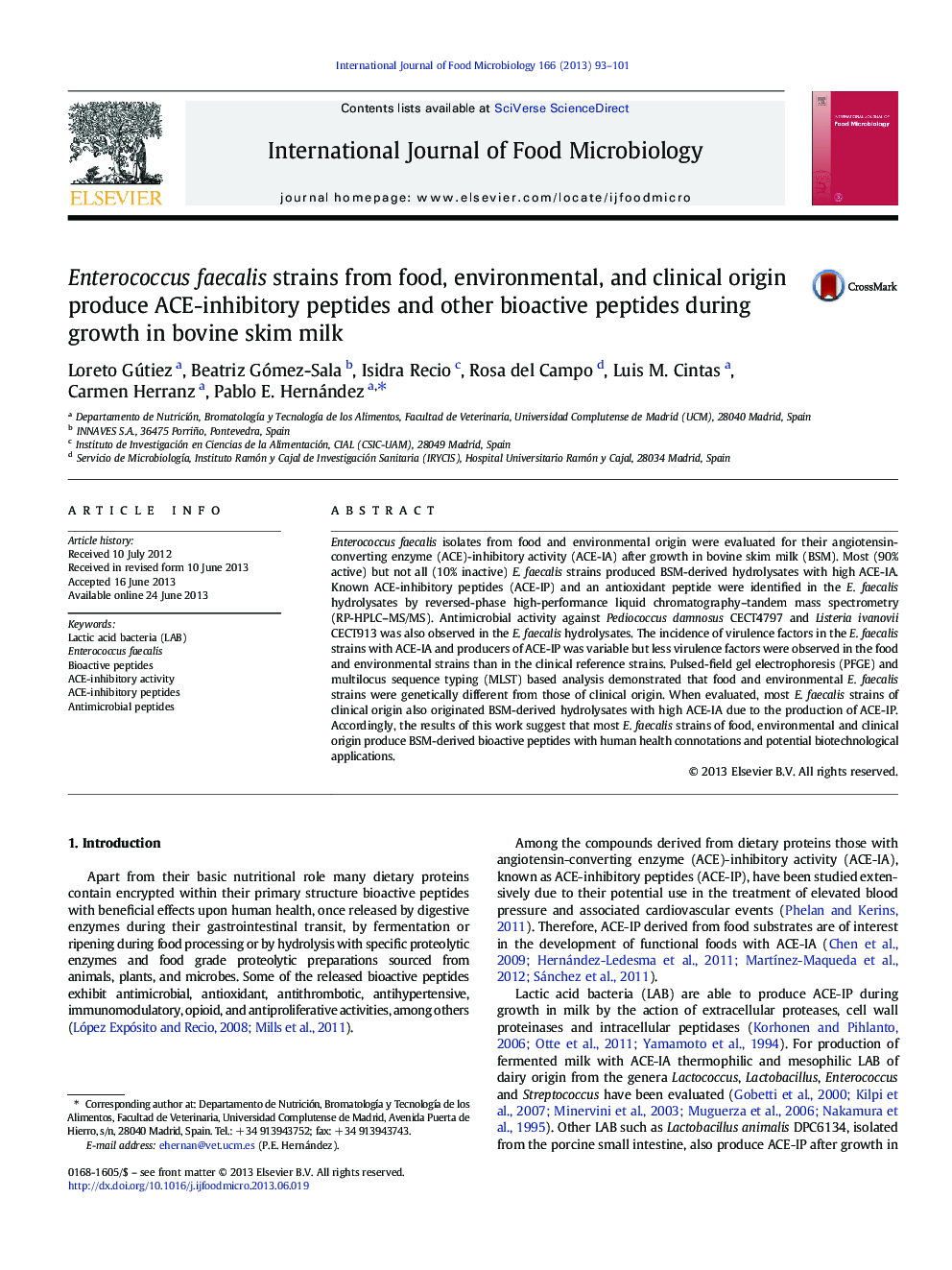| Article ID | Journal | Published Year | Pages | File Type |
|---|---|---|---|---|
| 6290186 | International Journal of Food Microbiology | 2013 | 9 Pages |
Abstract
Enterococcus faecalis isolates from food and environmental origin were evaluated for their angiotensin-converting enzyme (ACE)-inhibitory activity (ACE-IA) after growth in bovine skim milk (BSM). Most (90% active) but not all (10% inactive) E. faecalis strains produced BSM-derived hydrolysates with high ACE-IA. Known ACE-inhibitory peptides (ACE-IP) and an antioxidant peptide were identified in the E. faecalis hydrolysates by reversed-phase high-performance liquid chromatography-tandem mass spectrometry (RP-HPLC-MS/MS). Antimicrobial activity against Pediococcus damnosus CECT4797 and Listeria ivanovii CECT913 was also observed in the E. faecalis hydrolysates. The incidence of virulence factors in the E. faecalis strains with ACE-IA and producers of ACE-IP was variable but less virulence factors were observed in the food and environmental strains than in the clinical reference strains. Pulsed-field gel electrophoresis (PFGE) and multilocus sequence typing (MLST) based analysis demonstrated that food and environmental E. faecalis strains were genetically different from those of clinical origin. When evaluated, most E. faecalis strains of clinical origin also originated BSM-derived hydrolysates with high ACE-IA due to the production of ACE-IP. Accordingly, the results of this work suggest that most E. faecalis strains of food, environmental and clinical origin produce BSM-derived bioactive peptides with human health connotations and potential biotechnological applications.
Keywords
Related Topics
Life Sciences
Agricultural and Biological Sciences
Food Science
Authors
Loreto Gútiez, Beatriz Gómez-Sala, Isidra Recio, Rosa del Campo, Luis M. Cintas, Carmen Herranz, Pablo E. Hernández,
